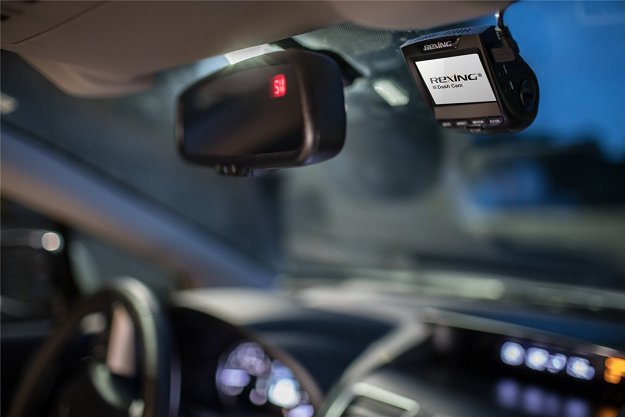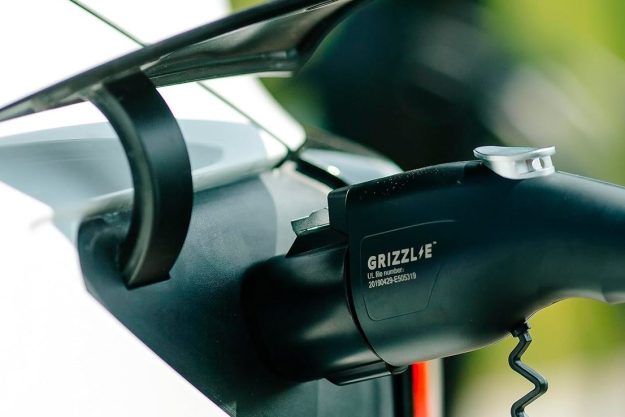
As Volkswagen shakes off the dust and puts its Dieselgate emissions scandal behind it, the People’s Car maker realized it needs to make an extra effort to truly redeem itself among the buying public. To try and offset all of the negativity, the company pledged to develop more hybrids and electric vehicles for the near future.
That’s led to the introduction of its I.D. lineup, featuring a completely new platform that will spawn a variety of production EVs. We got a preview of those models through several concepts over the past couple of years, including the I.D. Buzz, which resurrects the company’s microbus. Others include the I.D. Crozz, I.D. Vizzion, and the I.D. But the plan to build these new electric vehicles wasn’t enough to satisfy Volkswagen’s new executives, who want to leave behind the company’s dirty diesel affair for good.
We’ll invest $2 billion in electrical charging infrastructure in the U.S., on byroads and highways
To make sure the world forgets about its diesel snafu, Volkswagen went a step further and established a third-party firm dedicated to researching and developing a nationwide charging network in the U.S. We sat down with Hinrich J. Woebcken, Volkswagen of America’s CEO, to learn more about this campaign. Note that Audi boss Scott Keogh will succeed Woebcken on November 1, 2018.
“As part of our settlement with the government on this diesel disappointment, we’re committed to investing $2 billion dollars in electrical charging infrastructure in the U.S., on byroads and highways: about $800 million alone in the state of California, and another $1.2 billion across the country,” Woebcken exclusively told Digital Trends during a media roundtable.
Volkswagen funded and established a start-up firm called Electrify America. It’s a third-party entity completely dedicated to building charging stations across the country to support its new line of EVs. The expansion includes building charging stations at over 650 individual sites and an additional 300 highway-based sites throughout the U.S. Other automakers supporting the effort include Audi of America and even electric car start-up Lucid Motors. By building its own factory-backed charging network, the automaker hopes it’ll help bolster the success of its electric vehicles.

Volkswagen’s initiative with Electrify America can be somewhat equated to Tesla’s Supercharger network. When Tesla first began selling electric vehicles en masse, beginning with the Model S, the company created its own in-house and factory-supported Supercharger network for current and future Tesla models. This provided customers with a security blanket; it alleviated range and distance anxiety by backing Tesla cars with an accessible, factory-supported charging network.
But unlike Tesla’s charging infrastructure, which can only be used by Tesla owners, Volkswagen doesn’t plan to limit its new charging network strictly to its own products. Instead, the company plans to make its fast-charging network compatible with all electric vehicles.
Charging infrastructure is as important to the electric vehicle as petrol stations are to gas- and diesel-powered cars
“We have built up strong competency in the U.S. for charging infrastructure with this independent company, Electrify America. It’s based with us in Virginia. They’re now delivering to our company in Canada,” Woebcken continued. “We are right now in the process of investing and building up high-powered charging stations in Canada. Also, Porsche and Audi may come earlier with electric cars, which is why it’s so important to invest into this charging infrastructure.”
The future and overall success of these electrified cars is hugely dependent on country-wide efforts to beef up the number of charging stations. That’s because charging infrastructure is as important to the electric vehicle as fuel stations are to gas- and diesel-powered cars. With other automakers researching and developing electric vehicles for the near-future, the concept of an in-house or manufacturer-backed charging network has engineers wanting to provide the same support.
However, before companies can even begin, they need to work closely with government entities, such as city planners and public work officials, to make sure current technology can handle the demand for the high-voltage electricity needed to support fast and safe charging stations. While it may seem easy to plug an electric vehicle into an outlet, dealing with the high voltages needed to support mainstream fast-charging isn’t, especially with an aging and obsolete electricity infrastructure. Additionally, plugging an electric vehicle or a plug-in hybrid into a traditional wall socket at home requires a significant amount of downtime for charging since the flow of electricity isn’t typically high enough to support fast-charging.

Volkswagen is proactively taking these extra steps to work with civil engineers and city planners so that its chargers can readily supply electric vehicle owners with a steady, reliable, and quick way to recharge for more juice.
“[The infrastructure] will have very fast and powerful charging power, up to 350 kilowatts per hour at stations where modern battery technology can be charged very fast,” Woebcken further stated. “This investment, which is absolutely independent from Volkswagen AG, is an investment that we’re doing for the country and all other brands are welcome to share this technology. It will be an important contribution to overcome that fear of range anxiety.”
Despite the efforts, both Woebcken and engineers within Volkswagen acknowledge the current and major challenges that prevent electric vehicles from being successful enough to become as mainstream as gasoline- and diesel-powered vehicles.
The cars coming out after 2020 from Volkswagen will all have more than 200 miles of range
The biggest challenge for the success of electric vehicles, in addition to lack of widespread charging infrastructure, involves range anxiety. The term describes the psychological fear and paranoia of running out of electricity for propulsion. This fear is amplified by the limited driving distances of electric vehicles when compared to gasoline cars and the current limited availability of charging stations. Making matters worse is that charging these batteries can take exponentially longer than just filling a liquid fuel tank.
Limitations with current battery technology explain why an electric vehicle can’t travel as far as a gasoline-powered vehicle. The technology is partially there but balancing the cost of developing it at a price point that allows for mainstream implementation also presents major developmental setbacks.
The solution for electric vehicles is to not only expand the number of available charging stations, but to also implement fast charging stations. Thanks to its investments to build up charging infrastructure with Electrify America, Volkswagen hopes to make range anxiety a thing of the past for future EV owners. On top of expanding the number of available charging stations, Volkswagen is promising its new line of EVs will offer at least 200 miles of range to match the driving distance of traditional gas-powered vehicles.
“The second main reason why electric mobility up to now was having obstacles is the range,” Woebcken further elaborated. “Right now, the cars and the market, most electric cars on the market don’t have enough range. The cars coming out after 2020 from Volkswagen will all have more than 200 miles of range.”
Lastly, cost prevents electric vehicles from joining the mainstream. This cost hurdle partially explains why Tesla’s electric vehicles are more expensive than your average, run-of-the-mill mainstream automobile. Tesla’s cars still aren’t quite mainstream and are priced accordingly because the electrification technology behind them seems to only be currently available to those who can afford it; that’s why Tesla positions itself as a premium automaker. With Volkswagen’s new I.D. lineup, however, executives hope that electric vehicles will no longer be confined to just the premium market.
“The third big reason why electric mobility did not really fly yet is basically the cost of the cars. Sure, if you have a concept for millionaires, they can afford those cars. As a people’s car company, we have an approach to build cars for millions, not only for millionaires,” concluded Woebcken.
Editors' Recommendations
- How to maximize EV range in hot weather, according to the experts
- Volta is building a free electric car fast-charging network. No, really



